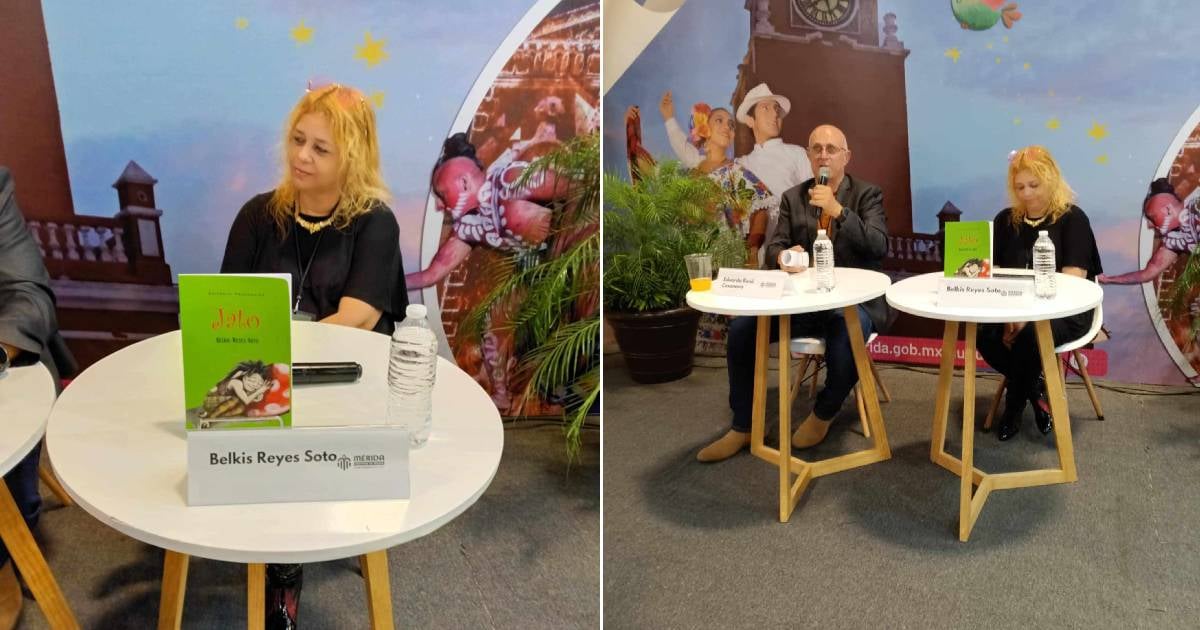The U.S.-based Primigenios Publishing House publicly condemned the harassment and intimidation faced by Cuban writer Belkis Reyes Soto at the hands of Cuban State Security agents during the International Book Fair in Mérida, Yucatán, Mexico. In an official statement posted on Facebook, signed by the publisher's director Eduardo René Casanova Ealo, the company expressed "deep concern and rejection" over incidents that allegedly included anonymous phone calls, intimidating interrogations, and covert visits to both the author and her family in Cuba, including her underage daughter.
“Enough with the harassment and intimidation,” the statement demanded, emphasizing that critical thinking, literature, and art are fundamental pillars of any nation that prides itself on being cultured. The call to action urged Cuban cultural and state authorities to ensure the respect, integrity, and freedom of writers, both domestically and abroad.
Primigenios also highlighted that the author holds a valid permit to remain outside Cuba, stating that any attempt to criminalize or exert pressure on her is a “grave disrespect to her integrity and her right to freely practice her artistic and cultural work.” The statement concluded by reaffirming the publisher's commitment to freedom of expression, human dignity, and the right to create without fear or retaliation.
Artists Under Surveillance: A Broader Pattern
The situation of Belkis Reyes Soto is not unique. Numerous Cuban artists and intellectuals have reported pressure from the Cuban security apparatus in recent years, designed to monitor, silence, or punish cultural expressions deemed "uncomfortable" for the regime. This incident occurs in a broader context of persistent surveillance over independent writers, musicians, and journalists, even when they reside or travel abroad with legal permits.
Understanding the Harassment of Cuban Artists Abroad
Why was Belkis Reyes Soto targeted at the Mérida Book Fair?
Belkis Reyes Soto was reportedly targeted by Cuban State Security agents due to her participation in the fair and her independent artistic expressions, which are seen as threatening to the Cuban regime.
What actions did Primigenios Publishing House take in response?
Primigenios Publishing House publicly condemned the harassment, demanded respect for artistic freedom, and reaffirmed their support for freedom of expression and the integrity of their authors.
Is this type of harassment common for Cuban artists?
Yes, many Cuban artists and intellectuals have faced similar pressures from the Cuban government, which aims to control and silence dissenting cultural voices both domestically and internationally.
